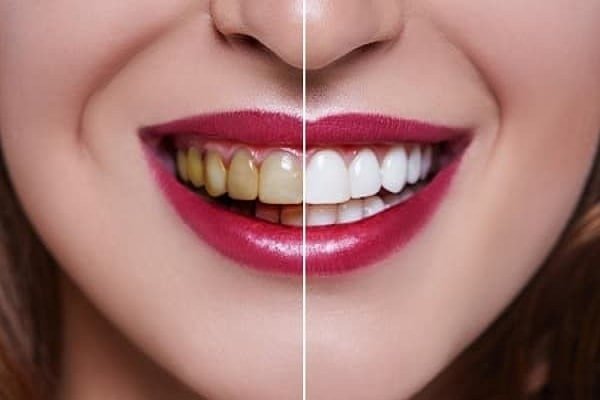Best Gum Treatment At Perfect Dental® In Jamnagar
We use the latest technology Dental Laser from BIOLASE, U.S.A. and P5 Newtron XS LED SATELEC piezoelectric scaler from France for Gum Treatment


Deep teeth cleaning, sometimes referred to as gum therapy, is a treatment that cleans between the gums and teeth down to the roots. Like a regular cleaning, the dentist will clean the tooth, gum line and sides of the teeth along with root planing.
Deep teeth cleaning involves removal of plaque and tartar using specific dental instrument called scaler, in order to clean and prevent any bacterial accumulation which otherwise may collect and cause serious gum problems. While Root planing involves smoothing rough spots on the roots of the teeth that can promote gum disease by trapping and holding bacteria. The whole procedure may be done in a single visit, although generally a quadrant or half of the mouth is recommended per appointment. Root planing smoothens the tooth root and helps the gum reattach to the tooth.
Regular cleaning involves removal of plaque and tartar, but it only targets the surfaces of the tooth above the gum line. Deep teeth cleaning on the other hand targets the surfaces at and below gum line, which if not cleaned may give rise to various gum diseases. Deep cleaning prevents the progression of gum diseases and prevents gum inflammation.
Bleeding gums, persistent bad breath, loose teeth, red and swollen gums, or pus around teeth and gums are some of the symptoms indicative of gum disease. Most of these signs are painless and may often go unnoticed which may aggravate the gum disease and can lead to early teeth loss.
We at Perfect Dental® have a team of high qualified gum specialists who helps to identify these signs of gum diseases and cure it before its progression. The entire procedure of Deep teeth cleaning is performed with utmost care and precision in order to provide a pleasant and painless dental experience. We use highly advanced and world renowned Ultrasonic Scaler and Hand Scalers in order to ensure maximum treatment outcome to our patients. We also use high end dental lasers for deep cleaning to render a comfortable, bloodless and painless dental treatment. With variety of patient friendly treatment options, we aim to beat gum disease and keep dental problems at bay.
A deep cleaning usually involves the use of local anesthetic to keep you comfortable while the dentist cleans underneath the gums. Your mouth will be numb to prevent the process from causing you any pain. A routine cleaning does not require any numbing.
A dental deep cleaning is far more intensive than a regular cleaning at your local dentist. When regular cleaning isn’t enough, whether due to oral hygiene neglect or advanced gum disease, our specialist doctors at Perfect Dental® may decide to do a more aggressive dental deep cleaning.
Once the plaque and food particles are cleaned out, your gums will begin to heal themselves and re-form the tight seal around your teeth within six to eight weeks.
After a deep cleaning procedure, you can expect your gums and teeth to be a bit sensitive for a few days. Sticking to soft foods and avoiding overly hot or cold beverages can help ease the discomfort. Within two or three weeks, you should be able to comfortably eat crunchy and chewy foods again.
Deep cleanings do not remove the tooth’s attachment to the gum and bone. In some cases, heavy accumulation of hard tartar buildup splints teeth together. Thus, when dental deep cleaning is done this tartar buildup is removed and the teeth are not splinted together anymore and the teeth can feel loose after a deep cleaning. But they are not loosened by the deep cleaning itself.
Yes, in fact that a reader will be distracted by the readable content of a page when looking at its layout.
The American Dental Association says that you should be visiting your dentist every six months for a dental checkup and cleaning. The reason that it’s twice a year is because a professional deep dental clean is vital to preventing serious dental issues such as gum disease and tooth decay.
Once the plaque and food particles are cleaned out, your gums will begin to heal themselves and re-form the tight seal around your teeth within six to eight weeks. Unfortunately, once you’ve undergone a root scaling, it’s probably not going to be the last time.
A deep cleaning usually involves the use of local anesthetic to keep you comfortable while the dental hygienist or dentist cleans underneath the gums. Your mouth will be numb to prevent the process from causing you any pain. A routine cleaning does not require any numbing.
The answer is yes, at least temporarily. During the process of cleaning your teeth, they will certainly be whitened a bit as we remove any plaque and tartar buildup. However, this is no replacement for professional teeth whitening if you are looking for a more brilliant smile.
Perfect Dental® is the best dental clinic in Jamnagar and our team of specialist doctors is highly skilled and experienced best dentists in Jamnagar. We have a highest success rate of 97%.

Dr. Chandani
Doctor
Dr. Chandani
Hey, how can I help you today?
Powered by Elementor